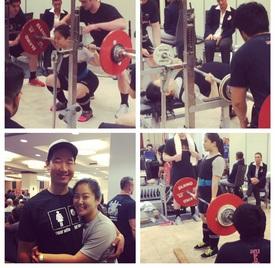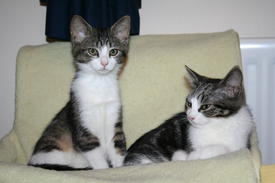9 Reasons Fat Loss is Always Slower Than You’d Like
Replies
-
I'm stuck here:
"2.Many people don’t account for how the weight or volume of food changes after it’s been cooked. For instance, baked sweet potatoes can lose half of their weight in water after cooking. If you calculate your calorie intake based on the weight of raw sweet potatoes, you’ll be eating 100% more calories than you thought."
But if I weigh a potato and it was 300g before baking it, and I eat that same potato, how am I now eating more? The only way I can think he means is that if I log 300g of sweet potato AFTER I cooked it, but logged it using the raw sweet potato entry in the database. Is that what he mean?
Otherwise, I can see all o' it! thanks for the article
I'm stuck here too. I *think* any water cooking out of something wouldn't affect the calories of the individual item because, well, it's water. But cooking water out of something would make it lighter, and maybe smaller in volume. Like, one strawberry will have the same calories as one dried strawberry, but one cup or ounce of dried strawberries will have a bajillion more calories than one cup of raw strawberries just because you can cram more in there.
I'd like to hear from someone who knows more, though.
He was describing where you would get your weight and calories for an uncooked item.
Say potato, so many calories per 300 g.
Now you cook it. You come up with wow, 300 g exactly when finished. So you log that calorie amount.
Problem was you used an entry for raw potato, but you measured a cooked potato. Your uncooked potato was actually say 600 g.
Same problem comes up with many packaged meals you might cook, like for emergency.
So you cook the whole dish that has say 2 servings.
When finish, and you zero out your plate on the scale, and proceed to scoop out the exact serving weight on to your plate.
The next night you scoop out the other serving, and it takes up less than half the plate.
You weighed the cooked food to match the uncooked serving size you based calories on.
Now, no problem except you ate more yesterday than today and might still be hungry, but log each as a serving and you balanced out OK (if the package size was correct anyway) between the 2 days.
So this goes to weighing the final cooked meal, minus the weight of the container, and then divide that equally in to however many servings were really in the package ("about 2 servings" is not to be relied on).0 -
bump for later0
-
Tagging to read later.0
-
I'm stuck here:
"2.Many people don’t account for how the weight or volume of food changes after it’s been cooked. For instance, baked sweet potatoes can lose half of their weight in water after cooking. If you calculate your calorie intake based on the weight of raw sweet potatoes, you’ll be eating 100% more calories than you thought."
But if I weigh a potato and it was 300g before baking it, and I eat that same potato, how am I now eating more? The only way I can think he means is that if I log 300g of sweet potato AFTER I cooked it, but logged it using the raw sweet potato entry in the database. Is that what he mean?
Otherwise, I can see all o' it! thanks for the article
I agree, this part isn't worded very clearly at all. I thought he'd got it the wrong way around but now I read it again I see what he was trying to say (i.e. don't use the calorie data for 'raw sweet potato' to determine the calories for a baked sweet potato you just weighed)0 -
Good read.0
-
7. You're a woman
Solution: Be a man
:drinker:
I lift heavy arsed weights so apparently I am already working on rectifying that issue!
If you believe Engineering the Alpha it's a testostorone vs. estrogen thing. You're eating and training to maximize your T vs. your E. "Being a man"...in a totally womanly way.0 -
Excellent article! Thanks for sharing!0
-
great article0
-
He was describing where you would get your weight and calories for an uncooked item.
Say potato, so many calories per 300 g.
Now you cook it. You come up with wow, 300 g exactly when finished. So you log that calorie amount.
Problem was you used an entry for raw potato, but you measured a cooked potato. Your uncooked potato was actually say 600 g.
Where I get quite stuck is, say, a stew.
I weight 300g stew meat raw for husband and myself. Pop into a stew with seasonings, water, etc.
Now that thing cooks, and it's challenging on a mixed dish to give us equal portions of the meat.
In that case, should I pull out the cooked meat, weigh it, split into two portions, and still go record the raw value for my portion (150g)?0 -
He was describing where you would get your weight and calories for an uncooked item.
Say potato, so many calories per 300 g.
Now you cook it. You come up with wow, 300 g exactly when finished. So you log that calorie amount.
Problem was you used an entry for raw potato, but you measured a cooked potato. Your uncooked potato was actually say 600 g.
Where I get quite stuck is, say, a stew.
I weight 300g stew meat raw for husband and myself. Pop into a stew with seasonings, water, etc.
Now that thing cooks, and it's challenging on a mixed dish to give us equal portions of the meat.
In that case, should I pull out the cooked meat, weigh it, split into two portions, and still go record the raw value for my portion (150g)?
It is a PITA, but you could weigh all the meat raw to get a calorie value, then weigh all the meat cooked - then work out what % you have v your husband. However, assuming its only every now and again, I would not bother TBH - I would just eyeball the portion and use the percentage to apply to the meal/stew as a whole. There is a point where accuracy becomes unwieldy - it really depends on how much you have meals like that and whether you are seeing progress.0 -
He was describing where you would get your weight and calories for an uncooked item.
Say potato, so many calories per 300 g.
Now you cook it. You come up with wow, 300 g exactly when finished. So you log that calorie amount.
Problem was you used an entry for raw potato, but you measured a cooked potato. Your uncooked potato was actually say 600 g.
Thanks for that clarification... so the lesson is (if I'm understanding correctly) to make sure that we enter raw/uncooked foods as raw or uncooked, and cooked foods as baked/boiled/broiled/(however we cooked it) for the most accurate calorie counts?0 -
It is a PITA, but you could weigh all the meat raw to get a calorie value, then weigh all the meat cooked - then work out what % you have v your husband. However, assuming its only every now and again, I would not bother TBH - I would just eyeball the portion and use the percentage to apply to the meal/stew as a whole. There is a point where accuracy becomes unwieldy - it really depends on how much you have meals like that and whether you are seeing progress.
Thanks. Yeah, I try to strike a balance and keep an eye on progress. Where I can be exact, I do so, and am learning to leave myself a margin if eating out (e.g. i reduce my intake goal by 100 cal or so). Thanks 0
0 -
I'm stuck here:
"2.Many people don’t account for how the weight or volume of food changes after it’s been cooked. For instance, baked sweet potatoes can lose half of their weight in water after cooking. If you calculate your calorie intake based on the weight of raw sweet potatoes, you’ll be eating 100% more calories than you thought."
But if I weigh a potato and it was 300g before baking it, and I eat that same potato, how am I now eating more? The only way I can think he means is that if I log 300g of sweet potato AFTER I cooked it, but logged it using the raw sweet potato entry in the database. Is that what he mean?
Otherwise, I can see all o' it! thanks for the article
You're on the right lines yeah. Say it weighs 150g after cooking. He's saying someone might weigh it after cooking rather than before, and record that they ate "150g of sweet potato" using the calorific data for raw sweet potato (either because they don't realise it makes a difference or the cooked data isn't available or the data's just labelled "sweet potato" without specifying raw/cooked). This would of course be inaccurate, as they're basically eating 300g of raw sweet potato.
Edit: didn't see thread was on second page and query had been answered.0 -
He was describing where you would get your weight and calories for an uncooked item.
Say potato, so many calories per 300 g.
Now you cook it. You come up with wow, 300 g exactly when finished. So you log that calorie amount.
Problem was you used an entry for raw potato, but you measured a cooked potato. Your uncooked potato was actually say 600 g.
Thanks for that clarification... so the lesson is (if I'm understanding correctly) to make sure that we enter raw/uncooked foods as raw or uncooked, and cooked foods as baked/boiled/broiled/(however we cooked it) for the most accurate calorie counts?
Not necessarily.
Weigh your item uncooked, log it if you'll eat it all, using uncooked item in database.
Don't cook, then weigh it the first time after cooking, then use uncooked item in database.
I'd actually not trust cooked items in the database. Did you leave as much water content in the cooked item as the database item has?0 -
great read0
-
Excellent article!0
-
Excellent article!! :flowerforyou:0
-
Great article!0
-
Bump for later0
-
I'm stuck here:
"2.Many people don’t account for how the weight or volume of food changes after it’s been cooked. For instance, baked sweet potatoes can lose half of their weight in water after cooking. If you calculate your calorie intake based on the weight of raw sweet potatoes, you’ll be eating 100% more calories than you thought."
But if I weigh a potato and it was 300g before baking it, and I eat that same potato, how am I now eating more? The only way I can think he means is that if I log 300g of sweet potato AFTER I cooked it, but logged it using the raw sweet potato entry in the database. Is that what he mean?
Otherwise, I can see all o' it! thanks for the article
I'm stuck here too. I *think* any water cooking out of something wouldn't affect the calories of the individual item because, well, it's water. But cooking water out of something would make it lighter, and maybe smaller in volume. Like, one strawberry will have the same calories as one dried strawberry, but one cup or ounce of dried strawberries will have a bajillion more calories than one cup of raw strawberries just because you can cram more in there.
I'd like to hear from someone who knows more, though.
He was describing where you would get your weight and calories for an uncooked item.
Say potato, so many calories per 300 g.
Now you cook it. You come up with wow, 300 g exactly when finished. So you log that calorie amount.
Problem was you used an entry for raw potato, but you measured a cooked potato. Your uncooked potato was actually say 600 g.
Same problem comes up with many packaged meals you might cook, like for emergency.
So you cook the whole dish that has say 2 servings.
When finish, and you zero out your plate on the scale, and proceed to scoop out the exact serving weight on to your plate.
The next night you scoop out the other serving, and it takes up less than half the plate.
You weighed the cooked food to match the uncooked serving size you based calories on.
Now, no problem except you ate more yesterday than today and might still be hungry, but log each as a serving and you balanced out OK (if the package size was correct anyway) between the 2 days.
So this goes to weighing the final cooked meal, minus the weight of the container, and then divide that equally in to however many servings were really in the package ("about 2 servings" is not to be relied on).
Sorry for the jolly long quoting here! Thanks haybales, you've confirmed what I thought. It'd be a silly sausage who logged raw-cals when weighing the cooked item Phew, one more off the to-understand list! 0
Phew, one more off the to-understand list! 0 -
Great article! Thanks
 0
0 -
Nice read0
-
great!0
-
Really good article!
I've always had big problems with 'whooshing'. I won't go 2-3 weeks without losing then suddenly drop a couple of lb. I'd go 13-16 weeks without losing then suddenly drop 10-14lb over the course of 3-5 days. I really have to watch my sodium/potassium levels like a hawk (unlike most people I tend to over do the potassium and actually need to make sure I add salt), otherwise I just gain water at the rate of fat loss.
I found the only thing which really worked to shift it once I understood what was going on was a 1 day calorie spike every 10-14 days to prompt the water loss. By calorie spike I mean 130-150% of my usual calories and not 300% of normal as the article suggested some people do!0 -
Bump0
-
Really good article!
I've always had big problems with 'whooshing'. I won't go 2-3 weeks without losing then suddenly drop a couple of lb. I'd go 13-16 weeks without losing then suddenly drop 10-14lb over the course of 3-5 days. I really have to watch my sodium/potassium levels like a hawk (unlike most people I tend to over do the potassium and actually need to make sure I add salt), otherwise I just gain water at the rate of fat loss.
I found the only thing which really worked to shift it once I understood what was going on was a 1 day calorie spike every 10-14 days to prompt the water loss. By calorie spike I mean 130-150% of my usual calories and not 300% of normal as the article suggested some people do!
The 'whoosh' after a high day is not unusual. It's one of the reasons that people erroneously think that eating more makes you lose weight - it actually makes you lose water weight - not fat. When you diet, your body will retain more water as a preservation/survival mechanism. When you have a spike, your body will release the extra water. Individuals vary as to how much this impacts them. I am pretty swingy when it comes to water weight fluctuations. I can gain 6lb in as many days and also lose the same amount in the same time frame. It makes analysing data a bish.0 -
Really good article!
I've always had big problems with 'whooshing'. I won't go 2-3 weeks without losing then suddenly drop a couple of lb. I'd go 13-16 weeks without losing then suddenly drop 10-14lb over the course of 3-5 days. I really have to watch my sodium/potassium levels like a hawk (unlike most people I tend to over do the potassium and actually need to make sure I add salt), otherwise I just gain water at the rate of fat loss.
I found the only thing which really worked to shift it once I understood what was going on was a 1 day calorie spike every 10-14 days to prompt the water loss. By calorie spike I mean 130-150% of my usual calories and not 300% of normal as the article suggested some people do!
The 'whoosh' after a high day is not unusual. It's one of the reasons that people erroneously think that eating more makes you lose weight - it actually makes you lose water weight - not fat. When you diet, your body will retain more water as a preservation/survival mechanism. When you have a spike, your body will release the extra water. Individuals vary as to how much this impacts them. I am pretty swingy when it comes to water weight fluctuations. I can gain 6lb in as many days and also lose the same amount in the same time frame. It makes analysing data a bish.
Yup, I completely agree with all that, and if it was a case of waiting out 2-3 weeks before seeing my water weight come off I really would just have sucked it up and waited, but spiking my calories to deliberately trick my body into dropping that water weight is the only thing which kept me motivated. 30% of one days calories over 10 days (or 50% over 14) didn't cause me too much of an impact on my average daily deficit either. I think some of us women have a harder time than others, and definitely than men, with water weight, the article has that spot on. I know mine is because I am just so sensitive to Na/K levels as well as all the usual girly water/menstrual cycle issues. Monitoring it really does help.0 -
FYI, the site doesn't seem to be working today (I get a 404 error on all but the main page, which now announces, "Welcome to Synthesis Managed WordPress Hosting"). However, the article is available via the Wayback Machine:
https://web.archive.org/web/20131105001211/http://impruvism.com/slow-fat-loss/0 -
Thank you; I was going to ask about that myself.:flowerforyou:0
-
Great article, needed this!!! Thanks Sara :flowerforyou:0
This discussion has been closed.























